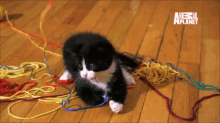meme courtesy of the author’s website
In the summer of 1970, Madeleine L’Engle left her family and their New England home at Crosswicks to assume the position of writer-in-residence at Ohio State University. In her memoir, A Circle of Quiet, she recalls that it was the first time she was “forced to think consciously about creativity in connection with little children.”
The group of writers she taught was diverse in many of the ways we discuss diversity in 2022. To teach inclusively, L’Engle created a classroom vocabulary — terms everyone understood when she referenced them, regardless of their meaning in other realms of life. This is how her word-of-the-summer came to be ontology. In A Circle of Quiet she explains that the way a child is at play is analogous to the way an an artist is at work; “the child is not only outside time, he is outside himself.” So is the artist.
As perfect a description of creating it may be, it’s exhausting for most working/artist parents. Even when we can exist outside of time, there is still only so much time to exist and supervise little peoples’ existences. But L’Engle wasn’t advocating that one schedule time to be so much as she insisted one can exist and play (create, be) outside of a conscious self in work and life. She called it humble living. It’s definitely a mindset.
I read A Wrinkle in Time when I was in middle school, and forgot about her and the novel until I started looking for artists who really started creating in their forties.
L’Engle did not become a famous writer until she was in her forties. One of her books was even rejected by a publisher on her 40th birthday. But throughout her thirties, while raising her kids, she wrote all those books, including the bestselling novel still widely read today: A Wrinkle in Time (rejected too many times to count).
In A Circle of Quiet, L’Engle candidly shares how self-conscious she was about those rejections, and I hold those chapters close.
Rejections made her feel bad that she wasn’t contributing financially to her family. Yet at the same time, the focus she put on her professional life made her a terrible cook. Still, she never felt bad about having ideas or the urge to do something with those thoughts.
To overcome her self-consciousness and resume, whenever she could, an ontological existence, L’Engle writes that she laughed at herself. She gave herself 24 hours to cry over a rejection.
And the moment she started to wonder about what happened, she went back to her typewriter to turn her musings into a new sketch for another story.
Reading A Circle of Quiet, I feel what some researchers (themselves mothers, academics, and artists) call a sense of in-betweenness:
“a state in which new paradigms can be developed allows us to create a sense of belonging and understanding.”
It is a very a specific kind of friendship that is not always easy to come by. You’ve experienced in-betweenness if you’ve ever connected to another parent who:
has kids your kids’ ages
is also working or creating in your field
shares a similar worldview and/or worldly concerns
and (most importantly) your conversations flow freely between the subjects of family life, your actual work, aspirations, and dreams — in short, when you feel supported, uplifted, and seen.
Because it’s rare to find an IRL friendship that checks off all 4 of those boxes, I’m finding it especially wonderful to read Madeleine L’Engle’s memoir alongside A Wrinkle in Time and to connect with her through her prose. It’s not too late to get your hands on a copy of A Circle of Quiet or A Wrinkle in Time and read along.
Here is my takeaway from reading A Circle of Quiet this week:
To exist ontologically means to make things with the experience of being you right now. To turn what matters to you into a character like Mrs. Who, or a song, or a mini turkey meatloaf (see below). Your family will benefit undoubtedly. But the real magic in existing is that, you’re doing it just for you.
Tell me, do you like what L’Engle is telling us? And do you need all 4 boxes to be checked to experience that sense of betweenness?






